This text is licensed under the Creative Commons license Attribution-NonCommercial-ShareAlike 4.0 International. The link to the original material is situated at the top right of the text.
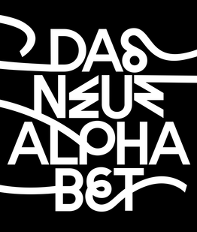
The New Alphabet
Bernd M. Scherer (director of the HKW), Olga von Schubert (research consultant of the director), Elisabeth Krämer (coordination New Alphabet School) and the whole HKW team and all the guests invited
2019
Keywords: languages, digitalization, knowledge production, learning practices, situated knowledge, global thinking, artistic research
Threads: Cooperating with(in) arts and culture, (Un)framing Knowledge, Inquiring, Learning
Short description
The long-term project The New Alphabet, initiated in 2019 by Haus der Kulturen der Welt in Berlin under the direction of philosopher Bernd M. Scherer is dedicated to the plurality of ways of knowing and learning that go beyond unifying matrixes such as universal alphabets like algorithms or DNA-codes. The self-description on the webpage reads as follows: “HKW’s long-term project The New Alphabet is intended both as a diagnosis and a provocation: vernacular, opaque, or marginalized ways of knowing are increasingly subsumed into abstract universalizing structures. What strategies of resistance against such processes of forced alphabetization exist or could be developed? And which role do artistic methods of appropriation and creolization play in this context?”
Under the frame of ‘The New Alphabet’ project is subsumed a big variety of projects, ranging from educational projects with children and with adults to evening lectures, concerts, exhibitions, workshops, reading sessions, panel discussions, conferences, installations. Many of these events are documented in some form (video, podcast, pictures, publications) on the HKW-The New Alphabet-website under the tab “Media”: https://www.hkw.de/en/app/mediathek/project/140915-the-new-alphabet
Personal appreciation
An institution like the HKW is interesting for me as a cultural studies scholar working at a university because it can choose relatively freely the formats they think are appropriate to address burning issues of today. Reaching out for diverse audiences but keeping close contact with the scientific community, they can explore non-conformist ways of thinking together. ‘The New Alphabet’-project is resonating a lot with the concept of subaltern knowledge, linking it even more with current issues of digitalization and mathematisation of data and thus on the ways knowledge needs to be formalized and unified in a computerized system. For me, the term ‘creolization’ used in the short self-description of the project, could be an important and extendable concept to promote the witty compilation of very different knowledges from different origins on different media supports and to be aware of its worldwide varieties, differentiations and connections against all tendencies towards a reductionist cleanliness of strictly operational knowledge.
Contribution to the "Who knows?" handbook
‘The New Alphabet’-project is addressing many questions that are interesting for the SHAKIN’ project, but on another scale and in other formats. The search and recognition for “vernacular, opaque or marginalized forms of knowing” is something that strongly relates the two projects. The publication series within ‘the new alphabet’-project as well as the audio and video files in the media-section of the project’s website are a most valuable source of inspiration and debate within our small international educational and research & sampling-project. In the educational sub-project New Alphabet School, the HKW aims at creating space, inputs and infrastructure, not only in Berlin but also in partner institutions in diverse cities such as New Delhi, Athens, Porto, Rafah, Mexiko City, Dakar, Warsaw for a “collaborative self-organized school for practice-based research” and furthermore: “Assuming that knowledge is not universal, but always located, or bound to a specific context, one's own position or place, the school aims to explore critical and affirmative forms of knowledge production in order to create solidarity between different approaches in theory and practice.“
Material(s)
„Working from Here. Territory, Tierra and Historiography in Times of Neo-Extractivism” (in English) im Rahmen von New Alphabet School #2 Situating
Link to material #2 - Boris Buden, Olga Schubert: Learning beyond alphabets. -> an introductory text to the New Alphabet School, 2019.
Link to material #3 - The Publication Series The New Alphabet started in 2021 with 26 volumes planned, of which 13 have already been published. Edited by Detlef Diederichsen, Anselm Franke, Katrin Klingan, Daniel Neugebauer and Bernd Scherer at Spector Books, Leipzig
Additional Information
| Location | Berlin, Germany Partner for the educational programme: GfZK Museum of Contemporary Art, Leipzig |
| Original language(s) | German |
| Existing translations | |
| Length | 4 years |
| Project runtime | 2019 - 2022 |
| Institution of affiliation | HKW Haus der Kulturen der Welt Partner for the educational programme: GfZK Museum of Contemporary Art, Leipzig |
| Sponsor(s) | The long-term project ‘The New Alphabet’ by the HKW is supported by the Federal Government Commissioner for Culture and the Media, Germany. The Haus der Kulturen der Welt as an exhibition hall and a site for cultural events is supported by the Minister of State for Culture and the Media in Germany and by the Federal Foreign Office of Germany. |
Additional Pictures
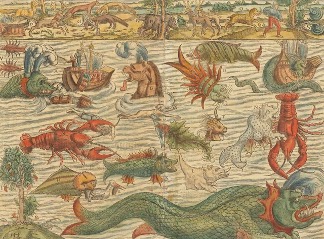
Source
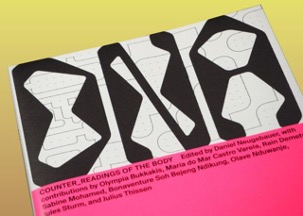
Source
Creative Commons
Related Contributions
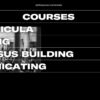
Anthropocene Curriculum
Haus der Kulturen der Welt, List of Contributors
2013
What should a body of “earthbound” knowledge contain that traverses from the global to the local and back?
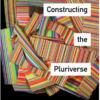
Constructing the Pluriverse: Geopolitics of Knowledge
Bernd Reiter (editor)
Zaid Ahmad, Manuela Boatcă, Hans-Jürgen Burchardt, Raewyn Connell, Arturo Escobar, Sandra Harding, Ehsan Kashfi, Venu Mehta, Walter D. Mignolo, Ulrich Oslender, Issiaka Ouattara, Bernd Reiter, Manu Samnotra, Catherine E. Walsh, Aram Ziai
2018
The contributors to Constructing the Pluriverse critique the hegemony of the postcolonial Western tradition and its claims to universality by offering a set of “pluriversal” approaches to understanding the coexisting epistemologies and practices of the different worlds and problems we inhabit and encounter.
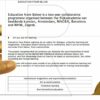
Education from below
Rijksakademie van beeldende kunsten, PEI at MACBA, and WHW Akademija
2019
The project recognises that art practices can dislocate the usual hierarchies of what should or should not be learned and that knowledge does not have to be based on accumulation, but rather on sharing and mutual learning.







